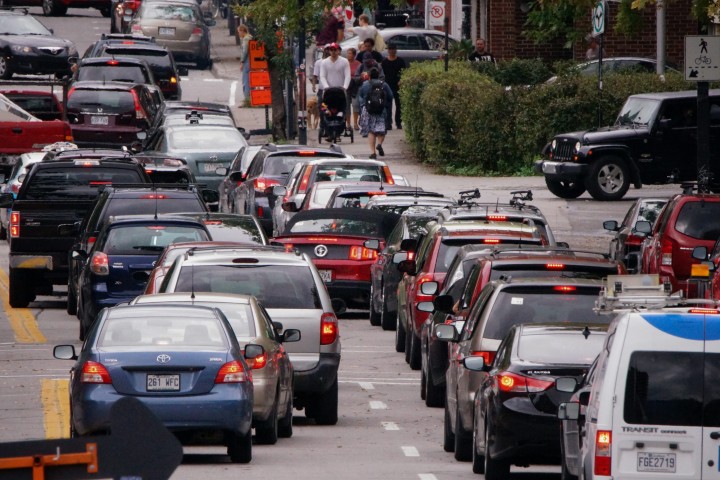MONTREAL – From the every day rush hour to construction and detours, traffic can often come to a standstill in large cities.

So, is it really a surprise that Vancouver, Toronto and Montreal topped the list of most congested cities in Canada?
According to the TomTom Traffic Index, Canada’s average traffic congestion rate dropped by two per cent, from 27 per cent to 25 per cent, with the busiest times usually happening on Thursday evenings.
The annual report detailed 295 cities in 38 countries around the world with the most traffic congestion, based on 14 trillion data points over eight years.
In Canada, Vancouver ranked the highest with a 34 per cent traffic congestion rate.
Toronto came in second at 28 per cent, while Montreal sits at a rate of 26 per cent followed by Ottawa (26 per cent), Halifax (26 per cent) and Winnipeg (22 per cent).
The least congested city in the country is Calgary, whose rate dropped by three per cent.
However, the trend is shifting with most cities experiencing a decline in traffic – a first in Vancouver since 2010; and 2012 in Toronto and Montreal.
Over the last year, drivers in Vancouver have saved nearly four hours of sitting in traffic, thanks to better traffic management.
In Toronto, that number drops by 11 hours; Montrealers spend about half an hour less time sitting in traffic.
“We really want everybody to think about how they can lower the amount of time they waste in traffic every day – and to realize that we all need to play a part,” said Ralf-Peter Schaefer, vice president of TomTom Traffic, who credits infrastructure and traffic management for the decline.
“Consider other modes of travel – maybe the fastest way to get to work is by bike, on public transport, or even by foot.”
Despite the improved rates, commuters will still spend an average of 126 hours of extra travel time per year – slightly more than five full days.
rachel.lau@globalnews.ca
Follow @rachel_lau


Comments